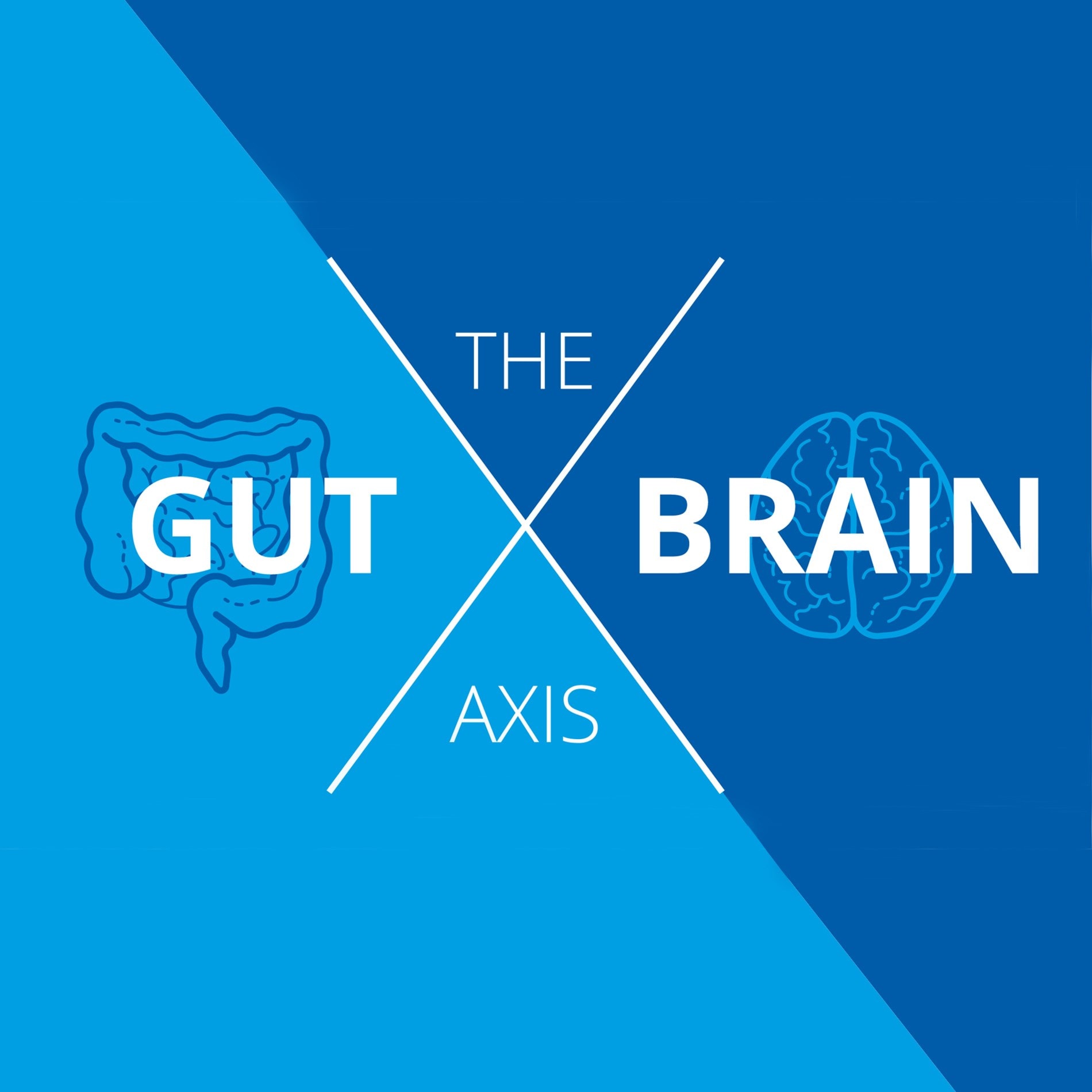Probiotics for Stress
You may have heard about the gut-brain axis which explores the connection between the gut and our emotions, and how our intestinal flora can influence our mood. Over the past decade or two, there has been an explosion of research in this field, with some interesting trials showing that the composition of our gut bacteria can impact our mood and wellbeing. This research is of great interest to many individuals, and also healthcare practitioners, as the numbers of people are presenting with low mood and anxiety are rising.
In this article, we look at some of the most researched probiotics for stress, delve a little deeper into the connection between the gut and the brain and discuss how our gut microbes and probiotics may influence our mental wellbeing. Read more about probiotics here: What are probiotics?
Key information about probiotics for stress covered in this article:
- Which probiotics are researched for stress and anxiety?
- Which probiotics are best for stress and mood?
- How can probiotics help stress, anxiety and mood?
- How long do probiotics take to help with stress and anxiety?
- Summary

Which probiotics are researched for stress and anxiety?
The link between our gut microbes and our emotional wellbeing is now well established.
A recent study6 has shown significant differences in the microbiome composition of healthy individuals as compared to the microbiome composition of those with ongoing low mood. Based on this understanding that signs of stress often manifest as gut issues and symptoms of a disturbed gut microbiome, research has been carried out looking at ways to manipulate the microbiome to affect our mood. Recent clinical trials have shown that certain strains of probiotic bacteria can alter our emotional state and response to stress, but a full understanding of which strains are best to use is still some way off. In the meantime, working with the clinical research available to us thus far, certain strains look very promising indeed. Specific probiotic strains that have been researched for their effects on stress and anxiety include:
- Bifidobacterium longum 1714
- Lactobacillus acidophilus Rosell-52 and Bifidobacterium longum Rosell-175
- Lactobacillus casei Shirota
Bifidobacterium longum 1714
One recent study that received plenty of media coverage was performed at the APC Microbiome Institute at University College Cork7. This gold standard study involving 22 healthy male volunteers found those who took 1 billion CFU of Bifidobacterium longum 1714 reported perceived daily stress levels were reduced and they also had lower levels of salivary cortisol, the stress hormone, than those participants who were taking the placebo. Although it remains to be confirmed how exactly the B. longum strain might influence our wellbeing, one possibility put forward by the researchers involved in this study is that the bacteria release substances that affect vagus nerve signalling, which connects the gut to the brain. Healthcare professionals can learn more about the research behind Bifidobacterium longum 1714 by reading Two Probiotic Strains for Mental Health on the Probiotic Professionals site.
Lactobacillus acidophilus Rosell-52 and Bifidobacterium longum Rosell-175
Further research studies have replicated this result using other strains of beneficial bacteria. One such study8 published in the British Journal of Nutrition in 2011 tested two probiotic strains in combination: Lactobacillus acidophilus Rosell-52 and Bifidobacterium longum Rosell-175, for their effects on mental wellbeing. Fifty-five volunteers were administered with either the two probiotic strains, or a placebo, every day for thirty days, and then their stress and anxiety levels were assessed. Results from this trial suggest that this probiotic combination supports mental wellbeing. The effects of the two same strains on symptoms of low mood were also assessed in a 2018 study9 comparing the effects of both probiotics, and prebiotics and demonstrated similar positive results, which was not evident in the prebiotic group, or the placebo group. Healthcare professionals can learn more about the research behind Lactobacillus acidophilus Rosell-52 and Bifidobacterium longum Rosell-175 on the Probiotics Database.
Lactobacillus casei Shirota
Lastly, a trial involving thirty-nine patients with Chronic Fatigue Syndrome10 (CFS) measured the effect of the probiotic strain Lactobacillus casei Shirota on their symptoms of stress and anxiety. The patients were divided into two groups and given either the probiotic at a dose of 8 billion CFU three times per day, or a placebo for two months. Anxiety is commonly experienced by CFS patients. The probiotic group demonstrated significant improvements in stress symptoms compared with the placebo group. Healthcare professionals can learn more about the research behind Lactobacillus casei Shirota on the Probiotics Database.
All of these clinical trials give reason to be very hopeful for the future role of probiotics in the management of stress and mental wellbeing. However, further high-quality clinical research is still needed to deepen our understanding.
The latest research on probiotic strains and mood include a 2024 study on Bifidobacterium breve M-16V12. Results suggest that a 6 week dosage of B. breve M-16V affects the metabolites of the gut microbiota and has the potential to improve mood and sleep.
Another 2024 study took a novel approach and investigated the probiotic strain Lactobacillus rhamnosos HN001 from a happiness point of view13. In a gold standard trial 120 adults suffering with moderate to high stress where given either 6 billion L. rhamnosos HN001 or a placebo daily for 28 days. At the end of the study happiness scores improved in both groups, but to a greater extent in the probiotic group. More individuals moved from 'not happy' to 'happy' in the probiotic group compared with the placebo group (39% v 29%) The researchers also reported that perceived stress scores reduced in both groups.

Which probiotics are best for stress and mood?
Scientists are still some way off understanding the full impact of different strains of probiotic bacteria on our mood. Research is ongoing in this area, but it will most likely be quite some time before we are equipped with a list of the best strains of probiotics to support mental wellbeing. Based on our current level of understanding, and the clinical research data that we have available to us, the probiotic strains that would certainly merit being at the top of any selection criteria for probiotics to support our mood and wellbeing include:
- Lactobacillus acidophilus Rosell-52 and Bifidobacteria longum Rosell-175
- Bifidobacteria longum 1714
- Lactobacillus casei Shirota
A 2021 8-week pilot study examined changes in depressive symptoms before and after the introduction of a probiotic supplement in 10 treatment-naïve Major Depressive Disorder (MDD) patients14. The study found that daily supplementation with a probiotic supplement containing Lactobacillus helveticus Rosell-52 and Bifidobacterium longum Rosell-175 (CEREBIOME®) at a dose of 3 × 109 CFU once per day significantly improved overall mood and anhedonia, reduced anxiety, and improved sleep quality. Moreover, the absence of side effects and adverse events associated with the probiotic indicates that it was well-tolerated and safe to use in this population.
Taking other steps to maintain a healthy gut environment and regulate the gut-brain axis could also be helpful to relieve stress. Eating plentiful amounts of fibre, including whole, unprocessed foods in our diet including lots of fruit and vegetables, taking moderate daily exercise, and keeping well hydrated, all help us to stress less and contribute to keeping our gut, or ‘second brain’ healthy and happy.
How can probiotics help stress, anxiety and mood?
Certain probiotic strains appear to exert a positive influence on our mood. These strains of friendly bacteria are sometimes referred to as ‘psychobiotics’. Scientists are working hard to understand how specific probiotic strains exert their effects on our mental wellbeing. Currently, it is believed that our gut microbiome influences our mood in three main ways, though in time, further research may uncover additional mechanisms of action.
Firstly, certain probiotics can produce neurotransmitters in the gut or impact the body’s ability to produce neurotransmitters, including GABA (Gamma Aminobutyric Acid), serotonin and dopamine1. Neurotransmitters are chemical messengers responsible for transmitting information within our nervous system. These substances are secreted within the gut where they influence nerve cell signalling which affects the information transmitted to our brain. This directly affects our brain chemistry and function, subsequently altering our behaviour and mood.
Serotonin is sometimes referred to as our ‘happy’ chemical or ‘feel good’ chemical as it lifts our mood. Certain types of pharmaceutical anti-depressants target serotonin signalling in the brain as a means of combatting depression. If serotonin is our ‘happy chemical’, then GABA is our ‘chill’ or ‘relaxation’ chemical. It is responsible for a state of calm and GABA signalling is often disturbed in those who suffer from anxiety2. Approximately 90% of our serotonin is produced in the gut, and our gut microbes play an important role in its production. This is one connection between gut health and mood.
The second way in which ‘psychobiotics’ can influence our state of mind is via their impact on the hypothalamic-pituitary-adrenal axis (HPA axis). The HPA axis makes up the body’s stress response system and orchestrates our hormonal response to physical or psychological stress. When dysfunction occurs in the HPA axis, our daily rhythmic production of cortisol and other stress hormones becomes disrupted which can result in feeling stressed, altered mood and disrupted sleep.
As discussed above, dysbiosis can lead to a ‘leaky’ gut barrier, allowing the passage of the contents of the gut through the porous gut lining, triggering an immune response. This immune response involves the production of pro-inflammatory messengers which can activate the HPA axis3,4. In other words, an imbalance in the composition of our gut microbiome can lead to the activation of our body’s stress response system, the HPA axis, and contribute to feelings of stress. Beneficial probiotic bacteria in a healthy gut microbiome produce short-chain fatty acids (SCFAs) when they breakdown prebiotic fibres. These SCFAs can help maintain the integrity of the gut lining, helping to limit inflammation caused by increased intestinal permeability.
The third mechanism of action is thought to be related to the impact probiotics can have on inflammation. It is widely understood that chronically elevated levels of inflammation can be an underlying factor contributing to the development of low mood5. This inflammation can stem from an imbalance of the gut microbiome (known as dysbiosis) resulting in ‘leaky gut’. Healthcare professionals can learn more about leaky gut in our article Could probiotics help with leaky gut? By improving the composition of the gut flora with selected strains of probiotic bacteria researchers have elicited an improvement in both mood and symptoms of stress. Read on for more details of this research.
How long do probiotics take to help with stress and anxiety?
The question of how long probiotics take to work is one that many people ask when they start looking at the benefits of taking them. Unfortunately, it is not an easy question to answer as there are so many variables. Everyone’s microbiome is completely different, in fact, it is believed that our gut microbiome is as unique to us as our fingerprint, which means that people will respond differently. For some people, the effects will be felt within just days or weeks, but for others, it may take longer. To learn more about how long it takes for probiotics to work, read How do probiotics work?
Gut flora and the emotion of fear
Research from the University of Cork has revealed a compelling connection between gut health and the way we process fear. In a study using mice raised in a germ-free environment, researchers found that the absence of a developed microbiome led to an exaggerated fear response. The key discovery was that the amygdala, the brain region responsible for emotional processing, became hyperactive when gut bacteria were missing. This heightened activity resulted in a stronger reaction to fearful memories, suggesting that an imbalanced microbiome may contribute to conditions such as phobias and post-traumatic stress disorder (PTSD).
While further research is needed, these findings reinforce the idea that gut health is deeply intertwined with emotional well-being.
Summary
- Stress and anxiety are on the rise globally.
- Research has linked the gut microbiome and our brain and emotions. This connection is referred to as the gut-brain axis.
- Gut bacteria have been shown to impact our mood and response to stress by affecting the gut-brain axis, the HPA axis (the body’s stress response system), and levels of inflammation in the body.
- Good gut health is associated with good mental health.
- Certain strains of probiotic bacteria (sometimes referred to as ‘psychobiotics’) have been researched for their effects on stress and mood including:
- Bifidobacterium longum 1714
- Lactobacillus acidophilus Rosell-52 and Bifidobacteria longum Rosell-175
- Lactobacillus casei Shirota
If you enjoyed reading this article, you may also like:
Healthcare professionals may like to read the following article on the Probiotic Professionals site:
Can probiotics reverse generational stress?
NHS recommends probiotics for mental health
Feeling shy? Try probiotics, says new study
References
- Strandwitz P. Neurotransmitter modulation by the gut microbiota. Brain Res. 2018. doi:10.1016/j.brainres.2018.03.015
- Jie F, Yin G, Yang W, et al. Stress in regulation of GABA amygdala system and relevance to neuropsychiatric diseases. Front Neurosci. 2018;12(AUG):1-9. doi:10.3389/fnins.2018.00562
- Misiak B, Łoniewski I, Marlicz W, et al. The HPA axis dysregulation in severe mental illness: Can we shift the blame to gut microbiota? Prog Neuro-Psychopharmacology Biol Psychiatry. 2020;102(April). doi:10.1016/j.pnpbp.2020.109951
- Turnbull A V., Rivier CL. Regulation of the hypothalamic-pituitary-adrenal axis by cytokines: Actions and mechanisms of action. Physiol Rev. 1999;79(1):1-71. doi:10.1152/physrev.1999.79.1.1
- Lee CH, Giuliani F. The Role of Inflammation in Depression and Fatigue. Front Immunol. 2019;10(July):1696. doi:10.3389/fimmu.2019.01696
- Yang J, Zheng P, Li Y, et al. Landscapes of bacterial and metabolic signatures and their interaction in major depressive disorders. Sci Adv. 2020;6(49):eaba8555. doi:10.1126/sciadv.aba8555
- Allen AP, Hutch W, Borre YE, et al. Bifidobacterium longum 1714 as a translational psychobiotic: modulation of stress, electrophysiology and neurocognition in healthy volunteers. Transl Psychiatry. 2016;6(11):e939-e939. doi:10.1038/tp.2016.191
- Messaoudi M, Lalonde R, Violle N, et al. Assessment of psychotropic-like properties of a probiotic formulation (Lactobacillus helveticus R0052 and Bifidobacterium longum R0175) in rats and human subjects. Br J Nutr. 2011;105(5):755-764. doi:10.1017/S0007114510004319
- Kazemi A, Noorbala AA, Azam K, Eskandari MH, Djafarian K. Effect of probiotic and prebiotic vs placebo on psychological outcomes in patients with major depressive disorder: A randomized clinical trial. Clin Nutr. 2019;38(2):522-528. doi:10.1016/j.clnu.2018.04.010
- Rao AV, Bested AC, Beaulne TM, et al. A randomized, double-blind, placebo-controlled pilot study of a probiotic in emotional symptoms of chronic fatigue syndrome. Gut Pathog. 2009;1(1):6. doi:10.1186/1757-4749-1-6
- Patterson E, Griffin SM, Ibarra A, Ellsiepen E, Hellhammer J (2020). Lacticaseibacillus paracasei Lpc-37® improves psychological and physiological markers of stress and anxiety in healthy adults: a randomized, double-blind, placebo-controlled and parallel clinical trial (the Sisu study). Neurobiol Stress. 13:100277. doi: 10.1016/j.ynstr.2020.100277. PMID: 33385020; PMCID: PMC7770962.
- Mutoh, N et al., (2024). Bifidobacterium breve M-16V regulates the autonomic nervous system via the intestinal environment: A double-blind, placebo-controlled study. Behavioural brain research, 460, 114820. https://doi.org/10.1016/j.bbr.2023.114820
- Al Kassaa I, Fuad M. (2024) Effects of Lacticaseibacillus rhamnosus HN001 on Happiness and Mental Well-Being: Findings from a Randomized Controlled Trial. Nutrients; 16(17):2936.
- Wallace, C. J. K., & Milev, R. V. (2021). The Efficacy, Safety, and Tolerability of Probiotics on Depression: Clinical Results From an Open-Label Pilot Study. Frontiers in psychiatry, 12, 618279. https://doi.org/10.3389/fpsyt.2021.618279
Popular Articles
View all Mental Health articles-
Mental Health23 Jun 2025
-
Mental Health23 Jun 2025

